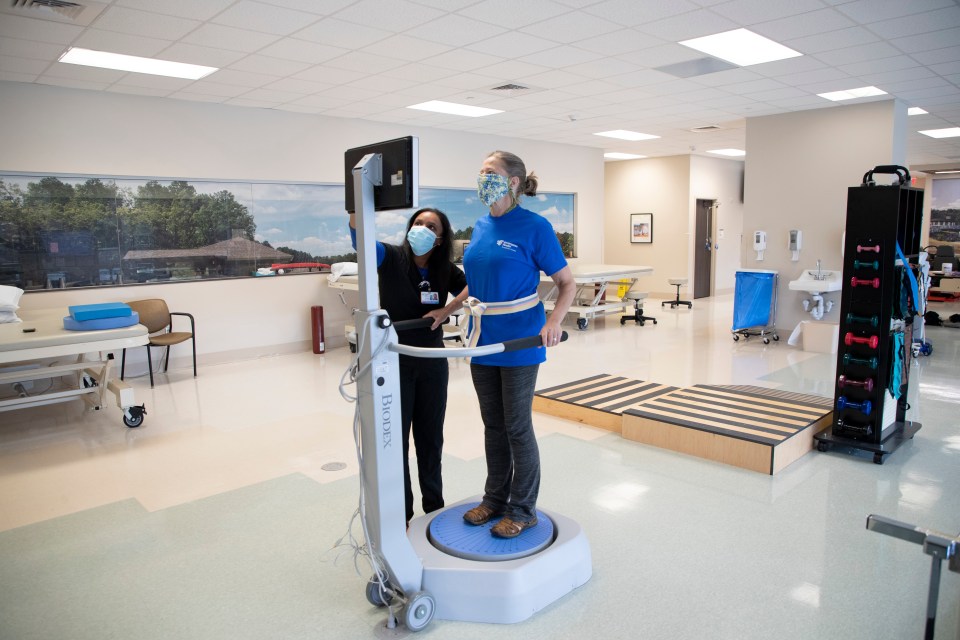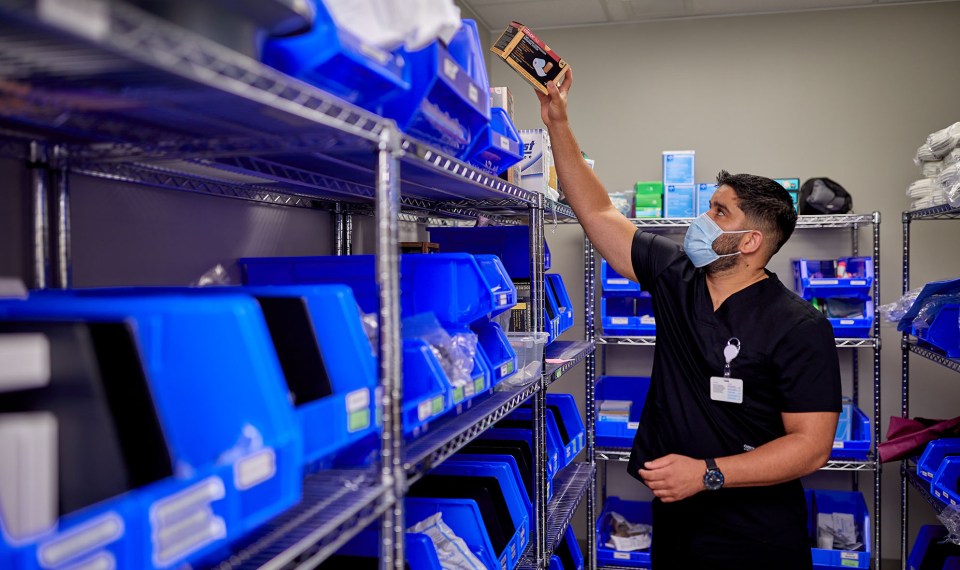Encompass Health continues to lead an initiative to further research in the area of rehabilitation therapy. For the fifth year, the Company invites Encompass Health physicians, employees and other qualified candidates in the medical community to apply to receive funding for research related to the inpatient rehabilitation facility (IRF) post-acute care setting.
Since the program’s inception in 2016, an average of four applicants per year have received funding. Previous winners achieved grants to help fund research studies related to the impact of progressive exercises, how socioeconomic status affects the wellbeing of amputee patients, the effectiveness of occupation-centered interventions, the impact of dynamic body weight support, the impact of virtual reality on pain management and much more.
Here’s a look at a few studies that have been funded in some capacity by Encompass Health in prior years.
2019
What are the barriers to incorporating intensity principles into inpatient stroke rehabilitation?
Although intensity is recognized as an important factor in post-stroke recovery research, it is rarely practiced in real-world environments. Translating new interventions, such as high-intensity rehabilitation, to the clinical setting can be challenging, but it is critical to the advancement of neurologic rehabilitation.
Research led by Mark G. Bowden PhD, PT; Eric D.Monsch DPT, NCS; Addie Middleton PhD, PTA; Chris Daughtry OTR/L of AnMed Health Rehabilitation Hospital, an affiliate of Encompass Health, Troy Powell, OTR/L; and Sara V. Kraft DPT, PT, NCS, ATP was partially funded by an Encompass Health therapy grant.
The objective of the study was to determine the feasibility of a rehabilitation approach focusing on cardiovascular, strength and gait training intensity in the inpatient rehabilitation setting after a new onset of stroke. These clinicians sought out to validate that higher intensity interventions are critical to improving physical function, as the intensity of training is consistently a factor associated with success in driving neurologic recovery.
As our healthcare system evolves, it is imperative to identify highly effective and efficient physical therapy treatment strategies. An increased intervention intensity during the inpatient rehabilitation stay is a simple way to maximize patient function. The published study, “Lessons Learned: The Difficulties of Incorporating Intensity Principles Into Inpatient Stroke Rehabilitation,” was featured in ACRM’s Archives of Rehabilitation Research and Clinical Translation in June of 2020.
Encompass Health thanks the following therapists and facilities for their participation in this research study (employment at the time of the study): Megan Crawford, DPT, NCS, Encompass Health Rehabilitation Hospital of York; Amanda Feller, DPT, NCS, Encompass Health Rehabilitation Hospital of Charleston; Laura Good, DPT, NCS, AnMed Health Rehabilitation Hospital, Anderson, SC; Tim Lesondak, DPT, NCS, Encompass Health Rehabilitation Hospital of Rock Hill; and Christine Duffy, DPT, NCS, Encompass Health Rehabilitation Hospital of York.
2018
How does socioeconomic status affect the wellbeing of amputee patients?
Socioeconomic status has been shown to be an important factor in the disparate prevalence and selected treatment of limb loss, but how personal financial difficulty affects patients’ health outcomes has long been unclear.
Szu-Ping Lee, PT, PhD, of Encompass Health Rehabilitation Hospital of Henderson, received an Encompass Health therapy grant in 2018. Along with fellow clinicians Lung-Chang Chien, Tyler Chin, Heather Fox and Juan Gutierrez, he set out to research the scope of mobility and patient-perceived outcomes of rehabilitation after lower extremity amputation surgery.
The study titled “Financial difficulty in community-dwelling persons with lower limb loss is associated with reduced self-perceived health and wellbeing” was published in Prosthetics and Orthotics International, a top journal in the field of prosthetics and the official publication for the International Society for Prosthetics and Orthotics in June of 2020.
Lee’s findings showed that the presence or experience of financial difficulty was significantly associated with diminished community re-integration in community-dwelling, non-military adults with lower limb loss. It affects both physical and emotional aspects of wellbeing. They now seeks to educate clinicians on awareness of how socioeconomic factors may affect social re-integration after amputation.
2016
How does caregiver education and support impact the wellbeing of the caregiver and care receiver?
At least 41 million Americans provide unpaid care for a family member or loved one, according to the AARP Public Policy Institute (2017). Michelle McCann, OTD, OTR/L, C/NDT, CBIS, PPSC of Encompass Health Rehabilitation Hospital of Sewickley in Pennsylvania set out to explore whether the use of caregiver education and support group training increases positive perception of health and well-being for those caring for persons with chronic neurological conditions.
Her study titled “Empowering Caregiver Transition: Impact of Caregiver Training and Support Group Services” was presented at the ACRM’s 2018 conference. The study focuses on the availability and effectiveness of caregiver resources, utilizing a lesson plan containing topics such as managing personal self-care, identifying sources of stress, communicating concerns, dealing with challenging situations, learning from emotions and mastering caregiving decision-making.
The results of this study were consistent with the evidence that caregiver educational training is overall beneficial to caregivers of persons with chronic conditions. The findings support the need for ongoing long-term support group interventions measures. Interventions need to focus on education that informs both the caregiver and the care receiver on the progression of disease processes and implications for functional change, which can impact the dyadic relationship over time of the caregiver and the care receiver.
Ready to apply?
The rehabilitation landscape is ever changing, and there is more research to be done in order to improve processes and produce the best possible outcomes for patients recovering from stroke, traumatic brain injury, spinal cord injury, respiratory illness and more.
A copy of Encompass Health’s 2020 therapy grant application may be found at ehc.news/therapygrants. Applications will be evaluated based on scientific merit, relevance to the grant program objectives and expected outcomes and study feasibility. The research should be conducted no more than 12 months after receiving the grant. Applications are due by 5:00 p.m. ET on July 31, 2020. Final selection will be completed by Aug. 31, 2020.
The content of this site is for informational purposes only and should not be taken as professional medical advice. Always seek the advice of your physician or other qualified healthcare provider with any questions you may have regarding any medical conditions or treatments.



